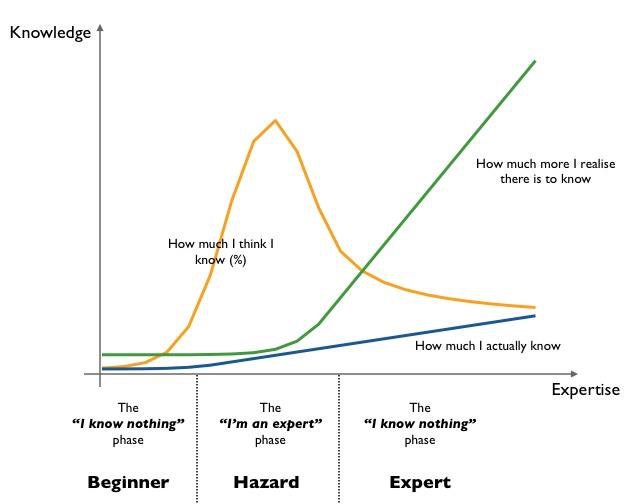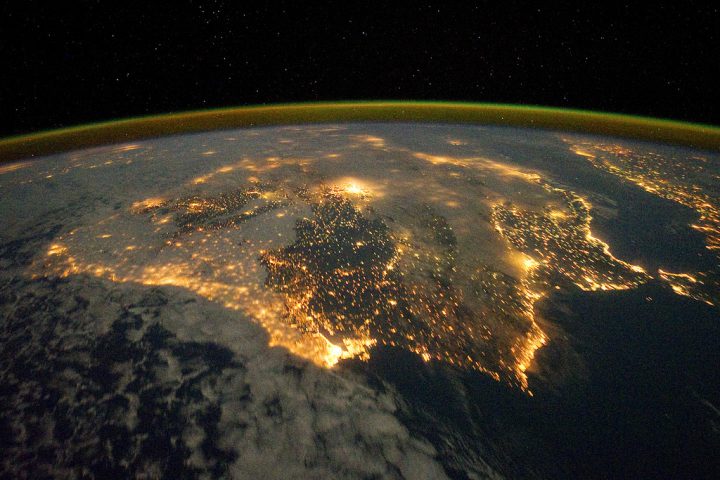Complexity, Equity and the Place of “Expertise”
July 11, 2017 Leave a comment“Mutual learning is only possible when all participants are willing to be wrong … willing to learn, to explore new ideas, to go off the map, out of the known, and together grope in the shadowy corners of new ideas, new plans, new territories.”
– Nora Bateson (from Small Arcs of Larger Circles)

“Expertise” is one of those concepts that seems to get a good vetting every now and then, and in the current climate of VUCA (volatility, uncertainty, complexity, ambiguity) and networked approaches to change, there is certainly good reason for this. Mark Twain once quipped that what made the expert an expert was being from someplace else. There may be some truth and value to this view; when a set of “outside” eyes can lend fresh new perspective to a situation. And it is also the case that deference is often given to this version of expertise at the expense of local and other diverse sources of knowledge.
Expertise when left unexamined can create significant problems, especially in diverse multi-stakeholder settings. Typically, expertise has a very intellectual/academic ring to it. If someone says that it’s time to call in an “expert,” who comes to mind? There are times and places for a more formally studied brand of expertise. However, expertise can also be based in other forms of knowing, as pointed out recently in a great NPQ article by our friends at MAG, including lived experience, which can all too easily be marginalized and along with it the voices and engagement of many of those most negatively impacted by an issue/situation.
Expertise in many contexts is racialized and gendered to equate, knowingly or not, with predominantly outspoken white male perspectives. See, for example, this piece from Soraya Chemaly on how women’s speech is often granted less authority and credibility than men’s.
So there is a call to vigilance in what Miranda Fricker calls “epistemic injustice.” That is, people can easily privilege something as “expertise” or someone as “expert,” which ends up having much less to do with actual content/value and much more to do with the (privileged) messenger. This can in turn lead to (continued) dismissal or marginalization of equally or more valid perspectives/knowledge, which produces/reinforces inequity and likely leads to erroneous conclusions.
In his post “The Collapse of Expertise and the Rise of Collaborative Sensemaking,” David Holzmer references sociologist Bridget Jordan’s observation that
“The power of authoritative knowledge is not that it is correct, but that it counts.”
This is a profound statement and calls on certain leaders, organizations and collective efforts to examine the way that they may be reinforcing existing efforts and power structures. In volatile, uncertain, complex and ambiguous settings, this can spell collective disaster. Complex conditions require balancing considerations of what constitutes “legitimate” forms of knowing and who has what kinds of “expertise” with what Holzmer and others refer to as diverse and collaborative “sensemaking.” This is in no way meant to disparage deep content knowledge and credentialed expertise, but rather to put it in its place. Filmmaker Nora Bateson, who is the youngest daughter of Gregory Bateson, puts it this way as she pulls apart the concepts of expertise, agency and leadership in these times:
“A real expert knows that they are in the process of learning themselves…. They are fertilizer, tending to the soil.”
This reframing of “expertise” and the call to get clear on what we mean by “knowing” might cause angst among those who just want to “get down to work,” keep some semblance of control and/or preserve their expert standing. The counter to this is to insist that there be real diversity “in the room” to start with and to stay curious and honest about whether people are simply reinforcing the status quo and systems they say they want to change at the expense of real progress.
How are you seeing, understanding and working with “expertise” in your networks and collective change efforts?
